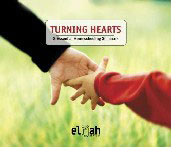Touch Hunger, part 2
Read past issues of the
e-journal HERE>> Sign up to receive our newsletter HERE>>>>
by Ellyn Davis
Skin Hunger
Skin hunger is a relatively new term that has been applied to the emotional response engendered by the loss of touch in our society. One of the five basic senses, touch is the only one essential to human life.
Our skin is our largest organ and research has shown that being isolated from skin-to-skin contact leaves a “touch void” in a person’s life.
Touch is such a basic human need that neither children nor adults can live without it.
During WW II babies in orphanages developed Failure to Thrive syndrome or even died when deprived of human contact. Children who live in abusive homes and who are deprived of touch, have been known to wither and die both emotionally and physically.
The need for touch is real, and persists throughout our lives.
Touch tells us we're safe, cared for, and have value. People who are sure of a warm embrace are happier, more alert, more willing and able to communicate.
Touch is a universal language that transcends verbal ability in communication. A squeeze of a hand, the pat on the back, or a gentle embrace, convey a primal message of comfort and tenderness.
However, unlike stomach hunger, skin hunger doesn't rumble for attention. It may even masquerade as depression, hallucinations, moodiness, anxiety, irritability, boredom, pain and many other symptoms or states of mind that can be mistakenly attributed to disease or physical conditions.
Everyone Needs to be Touched
Recent research in neuroscience has shown that loving touch is not an optional aspect of childrearing; it is essential for child development, and a lack of touch damages not only individuals, but our whole society. Loving touch releases the hormones oxytocin and dopamine, while infants who have not been touched have an increase in their levels of the stress hormone cortisol. Studies in aggression show that loving touch "tames" aggression in children and adults while "touch hunger" increases it.
The need for touch extends beyond the early developmental years. It is the first sense to develop in the womb and the last to diminish as we die. Babies and children with loving parents are cuddled and kissed and touched. As a child ages he seeks to become more independent and may even resist appropriate forms of touching such as hugs or back rubs.
Adolescence is a time of self discovery and growing sexual awareness. As kids grow into teens they may seek sexual intimacy even when not emotionally ready because the need for touch is so strong. How many girls have had sex prematurely when all they really wanted was to be held? Compounding the problem, many parents will decrease physical contact with their teens because of fears of inappropriateness.
Maturing into adults we face a world that explodes with sexual images but discourages more than a friendly nod or a handshake in public. Sexuality is OK but intimacy is not.
Americans Suffer from a Lack of Touch
Americans, especially, suffer from a lack of touch. Following a research project on touch around the world, social scientists rated the United States and Great Britain among the lowest touch countries studied. The "warmer" high-touch countries included Spain, France, Italy, and Greece.
Tiffany Field, Director of Touch Research Institutes at the University of Miami, feels touch is essential to how we learn, feel and think. A study conducted by Field compared the interaction of mothers and their children at playgrounds and McDonalds in Miami and Paris. The Parisian mothers touched their children far more often than their American counterparts. In addition, the French children displayed much less aggression than the American children.
The power of touch pervades all areas of our society. Salesmen may use a light touch to influence a potential client into a sale. Waitresses have been found to receive larger tips if they subtly touch a patron.
But the most well known association to touch is healing. The bible often makes reference to the "laying on of hands" to heal the sick. The word surgeon has its roots in the Greek word kheirourgos meaning "hand healer".
Why are We So Touch Deprived?
Four trends in our society cause us to be touch deprived:
Technology
The age of technology has allowed us to interact with others around the world via satellites and microchips but has dehumanized our daily lives. In a recent poll Americans rated the cell phone as the device they hate the most, but can't live without. We interact more with our time-saving devices than we do with each other.
Children of busy mothers may often be "surrounded by plastic". From the day care center to the home environment, infants are "contained" in car seats, strollers and playpens. When mom is too tired or busy to attend to them, children may be plunked in front of the electronic babysitter, the TV. Contrast this to the child who is held all day, snuggled close in a baby carrier, or has the opportunity to interact and play freely with his environment.
Disconnected lifestyles
Urbanization, two career families and the loss of the extended family have led us to isolation.
Husband and wives, caught up in work and family obligations, are often too exhausted to give each other the affection needed. A recent Newsweek cover story focused on the "so-called epidemic of low-sex or no sex marriages in America."
We rarely know our neighbors or live close to parents and grandparents. We are suspicious of strangers and carefully guard our personal space when we meet new people. Only in small cities and towns in America do you find the connectedness and community needed to "keep in touch".
A Litigious Society
Touching someone can be a federal offense these days. With the new sexual harassment laws many people are afraid to extend a warm hug or a friendly touch. In addition, with the increase in child molestation, we must guard our children's safety and teach them the difference between good and bad touching. Unfortunately for our children, that means their caregivers must be especially guarded in showing them affection, even when appropriate.
The media
Relaxed morals in mass media portray an unrealistic view of sexuality and relationships which can lead to inappropriate behavior and desires. We want what we see on the silver screen even if it is unattainable, further feeding our skin hunger.
How Can We Make Sure Our Loved Ones Get Enough Touch?
It is essential to incorporate non-responsive touch into our children’s day in order to provide the emotional and neurological benefits of touch. Try stroking your son’s hair while you do schoolwork together or rubbing your daughter’s back as she settles down to bed. These actions come more naturally when children are toddler or preschool age, as they grow older more of an effort needs to be made to remember to continue physical closeness.
Reading a story or watching a movie together is a beneficial time to put your arm around your child- even if she is a teenager! As children age, many will resist touch as they struggle to become independent. Don’t feel offended or insulted if your child is in that stage- rest assured that it is totally normal! Without any fanfare or comments, continue to brush his shoulder as you fix his collar, or pat her back as you smooth her hair. Nobody is too old for demonstrative love, even if many a thirteen-year-old thinks so!
Infant massage is a wonderful manner of incorporating loving touch in a baby’s early years of development. There are many books and DVD‘s available that demonstrate effective techniques.
If you live with a partner, take the time and energy to make sure that you fulfil one another’s need for touch on a regular basis, or schedule a massage with a professional.
So, reach out and touch someone you love today.
Til next week....
(This article is a compilation of notes I took from various different sources.)
|







